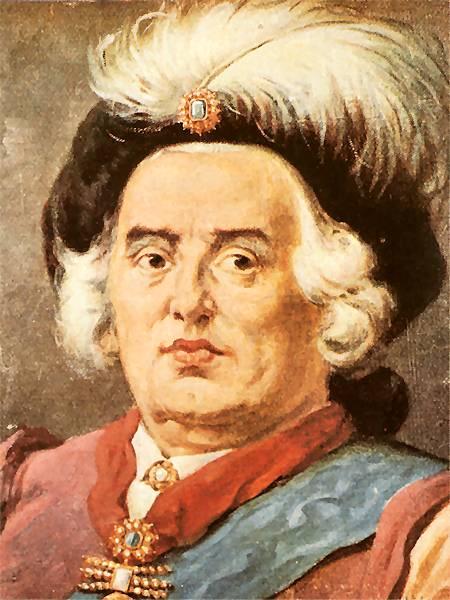Description
The painting "Augusto III of Poland" by Jan Matejko encapsulates a convergence of power and elegance in the portrait of the Polish monarch, who ruled in the 18th century. This work, like many of those made by Matejko, is not only limited to representing the figure of the king, but also acts as a mirror of the political and cultural context of his time. The call for gold and luxury emanating from the canvas are characteristic of the painter's style, who sought not only to reflect reality, but also to instill in his work a powerful narrative that resonates with Polish history.
The composition of the painting stands out to Augusto III in the center of the painting, guaranteeing that the viewer's attention is immediately directed towards him. Its position, which exudes dignity, is complemented with an opulent clothing adorned with color and texture details. Matejko, known for his domain in the representation of historical clothing, uses a deep -colored palette, where blacks and gold dominate, suggesting both the wealth of the kingdom and the solemnity of the reign of the monarch. The lighting in the work plays a crucial role; It highlights the folds of the clothing and gives life to the details of the king's face, characterized by a serene and majestic expression.
A remarkable aspect of this painting is the inclusion of the symbols of power. The subtle presence of the scepter and the crown are erected as signs of authority, encapsulating the sense of duty that leadership entails. Although the figure of Augusto III is the protagonist, the interaction with these elements also invites reflection on the symbolism of power and fragility inherent to the real authority.
The background of the paint is equally significant; Although it is not overloaded with details, its darkest tone contrasts with the king's brilliance, allowing the central figure to stand out almost three -dimensional. The choice of a sober fund aligns with the intention of Matejko to focus attention on the monarch, leaving room for the greatness of August III to shine by itself.
His style, which integrates influences of romanticism and realism, made Jan Matejko one of the most recognized artists in Poland. This painting It is a paradigmatic example of how Matejko combines techniques of the classical academy with a narrative approach, turning the portrait into a visual history about national identity and Polish inheritance. Comparatively, other works by Matejko such as "The Battle of Grunwald" or "The death of Esteban Báthory" also use the historical narrative and a masterful use of color and light to explore significant issues of Polish history.
The painting "Augusto III of Poland" is not limited only to being a portrait, but becomes a testimony of the 18th century splendor and the complexity of the figure it represents. Through his technique, his composition and his symbology, Jan Matejko manages to capture not only the physical image of the king, but also a sense of greatness and the challenge of being a monarch in a historically tumultuous time. This work is ultimately a reminder of the crucial role of art in preservation and reflection on history and power.
KUADROS ©, a famous paint on your wall.
Hand-made oil painting reproductions, with the quality of professional artists and the distinctive seal of KUADROS ©.
Art reproduction service with satisfaction guarantee. If you are not completely satisfied with the replica of your painting, we refund your money 100%.

